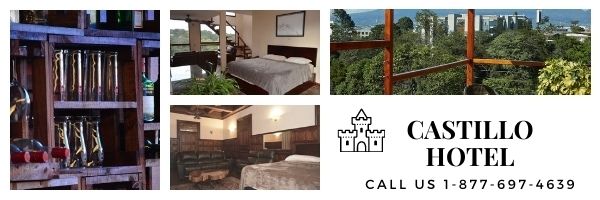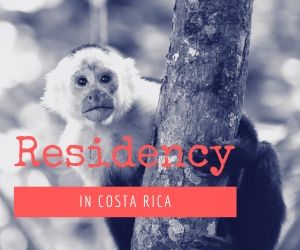|
DRIVING FROM SAN JOSE TO PUERTO VIEJO:
On my last trip to Costa Rica (my 7th), I finally mustered the courage to take on the challenge of driving. At first, the thought made me cringe, but after several days, I almost felt at home. (Driving experience in a major metropolitan area like Philadelphia is good practice for driving in San Jose.) My wingmen and I rented a car from Thrifty, located at the northern end of Calle 3 in Barrio Amon. I highly recommend another licensed driver as co-pilot. It helps to have another person navigate… read road maps, identify landmarks, watch for potholes, etc. Don’t leave home without one!
The 260 km trek to Puerto Viejo begins where Calle 3 ends and will takes about 4 to 4 ½ hours (YMMV). After crossing the bridge at the northern end of Calle 3, you will be on National Hwy #32 headed towards Braulio Carrillo National Park. There is a small toll (about 200 C) just north of town. The road here is in pretty good shape. You will begin to climb the Central Mountain range before entering the park. The road through the park is full of curves and very steep, but has some passing lanes to get around slow moving trucks and busses. As you approach the summit of the mountain range, you will see some breathtaking views and experience intermittent rain as you pass through the clouds. (It gets a little chilly up here, too). Be on the alert for MOPT speed traps and Fuerza Publica ID checks.
As you whisk down the Caribbean side of the mountains, the outside temperature begins to increase. Hwy # 32 begins tending eastward toward the Caribbean Sea. After an hour or so you will pass Guapiles, the first major town along the route…and then on to Siquerres. Siquerres is the half-way point of the trip. On the left side of the highway outside Siquerres, there is a very good bar and restaurant to get some refreshments. (It can be identified by the numerous parked tourist vans and mini-buses.) There are also many stands selling fresh fruits, frescas, pipas and other goodies to pick up along the way. Several km outside of Siquerres, you will leave the lush vegetation of the hills and enter the banana-growing region. The route is surrounded on both sides by thousands of hectares of banana trees and the road conditions begin to deteriorate… and you will need to swerve to avoid potholes. About 90 years ago, my grandfather took pictures of the various banana plantations when he worked for the United Fruit Company. Whenever I travel along this segment, I mentally try to match up the old pictures with current day scenery along the road. Most of his pictures were taken from the old rail line that existed before there was a road. You can still see the old railroad bridges that span the many rivers coursing through this region. As you approach Puerto Limon, you will pass by large staging facilities crammed with shipping containers and tractor-trailers loaded with bananas waiting to be shipped around the world.
The approach to Limon can be congested at certain times of the day. After passing a large, modern mega gas station/convenience store complex on the left, you will spot another gas station on the right…make a right turn here. (You may want to fill up at the gas stations before proceeding further). The speed limit through this residential area is very slow, so drive with caution. Once you pass through the residential neighborhood, you will enter an open road that leads you to Hwy #36 towards Puerto Viejo, Bribri and Panama. You will pass by a single paved airstrip (Limon Airport), which I believe was the site of the old United Fruit Hospital and Wireless Station. At this point you are still about 70 km from Puerto Viejo. Once you negotiate a few sharp curves, Hwy #36 straightens out and hugs the coast and runs along some beautiful beaches. You can make good time along this stretch…very straight and not many cars…but watch out for potholes!
At Bonifacio and Penshurst, you cross a bridge over the Estrella River. A few kilometers southeast, you will pass by Cahuita Point National Park. Continue south on Hwy # 36 to Punta Caliente and then look for a fork in the road. Take the left fork in the road…this is the road to Puerto Viejo. The right fork is the continuation of Hwy # 36 to Bribri and the Sixaola border crossing into Panama. The road to Puerto Viejo is in very poor shape. There is a Fuerza Publica ID checkpoint at the beginning of the road. Once you pass the checkpoint, the road is dirt and gravel. Thankfully, Puerto Viejo is just a few dusty kilometers down the road. Once you arrive, your first order of business should be a dip in the ocean after your grueling 4-hour journey!
The beaches along the 14 km stretch from Puerto Viejo to Manzanilla are among the most beautiful in the world. Because of the vast coral reefs, the playas at Salsa Brava, Punta Cocles and south attract surfers from all parts of the globe. Manzanilla is the end of the line for vehicular travel. The only way through the Manzanilla-Gandoca National Preserve is by foot or boat. This is a great area for chilling and enjoying nature with your favorite chica. The nightlife in Puerto Viejo is different and laidback and you will have the opportunity to meet many international tourists. You can enjoy open-air bars along the beachfront or just chill out by a beach bonfire at night. If you haven’t been here, I highly recommend it as an alternative to the hustle and bustle of San Jose. It is a refreshing alternative.
Happy Motoring in CR!
_________________
Blue Devil
Pura Vida...enjoying life to the fullest...
|










